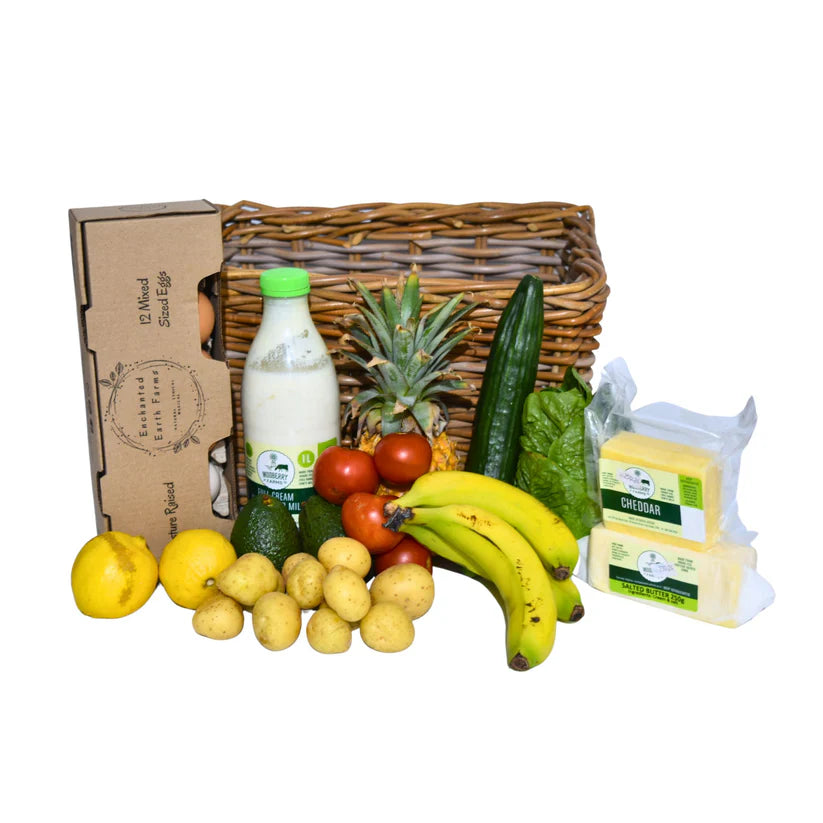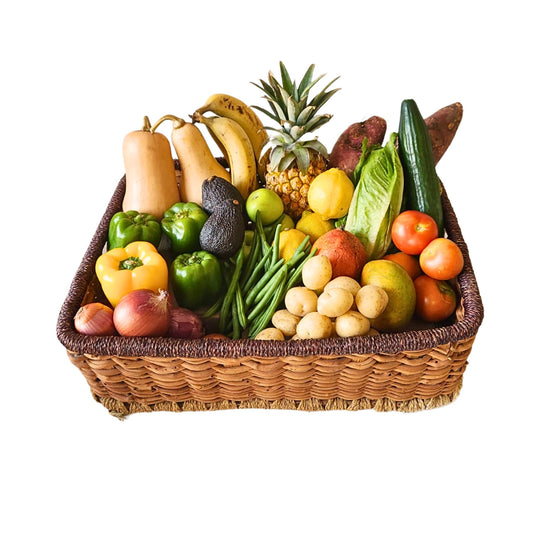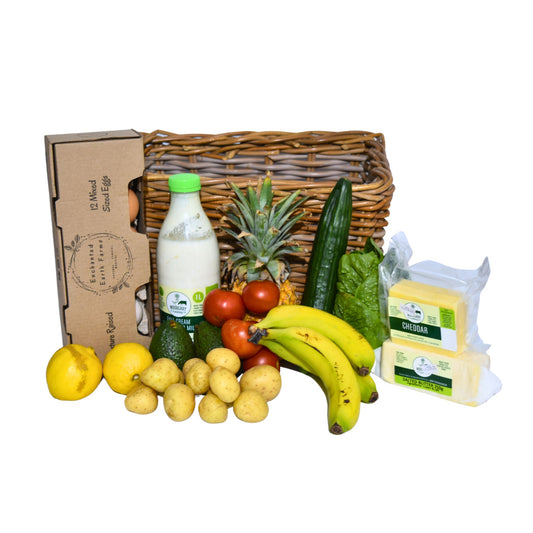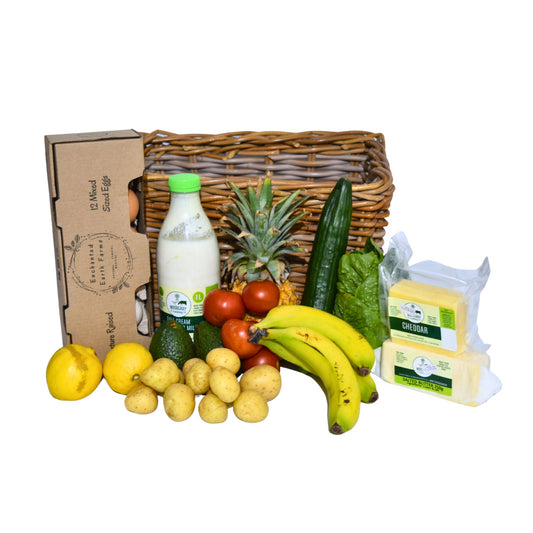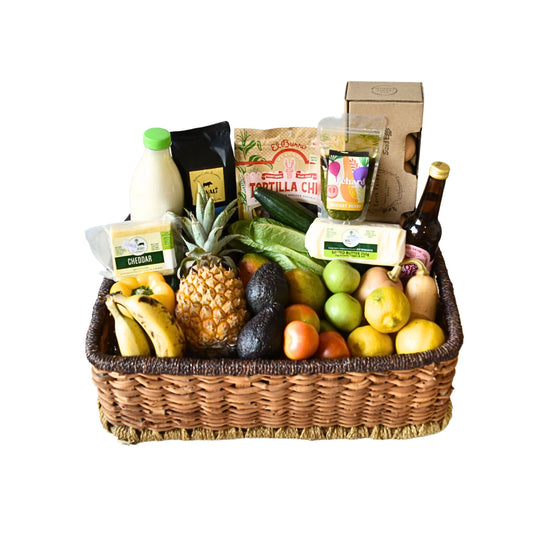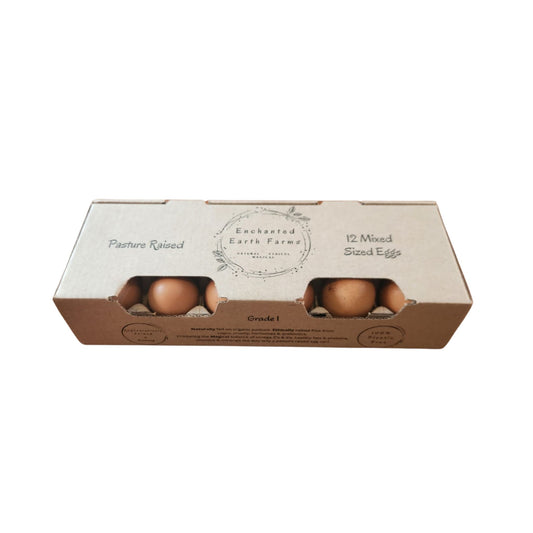Article Summary:
-
Planning meals helps you eat healthier and reduce stress during busy weeks.
-
Organic groceries make simple meals cleaner, fresher, and more nutritious.
-
Use seasonal ingredients to keep your meal plan flexible and affordable.
The key to stress-free, healthy eating
We’ve all been there—standing in the kitchen at 6 p.m., staring at the fridge, wondering what to make for dinner. A good meal plan changes that. By planning your weeknight meals around fresh organic groceries, you can save time, reduce food waste, and enjoy delicious, nourishing food without last-minute stress. The secret isn’t complicated—it’s about structure, variety, and using what’s in season.
Step 1: Start with seasonal organic produce
The best meal plans begin with what’s fresh and in season. Seasonal organic fruits and vegetables are more flavourful, affordable, and nutrient-rich. In winter, think leafy greens, root vegetables, and citrus. In summer, it’s all about tomatoes, peppers, and zucchini. Check what’s available at Orchard Food each week and let those ingredients inspire your menu—it’s the easiest way to keep meals interesting and natural.
Step 2: Choose your weekly meal framework
To make meal planning simple, create a weekly rhythm that repeats. For example:
-
Monday: Meat-free meal (like a lentil curry or veggie stir-fry)
-
Tuesday: Poultry or fish with roasted seasonal vegetables
-
Wednesday: Grain bowl night (mix rice, quinoa, and fresh greens)
-
Thursday: Pasta or one-pan dish
-
Friday: Leftovers or easy wraps/soups
This structure takes the guesswork out of planning and helps you balance nutrition throughout the week.
Step 3: Prep your staples ahead of time
Set aside a little time on Sunday to cook grains, roast vegetables, or wash greens. Having organic quinoa, brown rice, or roasted butternut ready in the fridge makes weekday dinners effortless. Pre-chopped veggies and pre-cooked proteins reduce cooking time and help you avoid reaching for convenience foods. The goal isn’t perfection—it’s preparation.
Step 4: Mix and match organic ingredients
Organic groceries shine when they’re used flexibly. Cook once, eat twice: roasted chicken becomes wraps the next day, and leftover veggies turn into a soup. Keep a variety of organic pantry staples—grains, beans, olive oil, herbs, and vinegars—on hand to mix flavours easily. By combining fresh produce with reliable basics, you’ll always have a meal ready to go.
Step 5: Keep it simple and sustainable
Organic eating doesn’t need to be elaborate. Focus on whole ingredients that taste great naturally—fresh herbs, cold-pressed oils, and seasonal vegetables. If your week gets busy, plan at least one “quick fix” meal, like a veggie stir-fry or quinoa salad. Using Orchard Food’s subscription boxes makes it even easier—you’ll receive a curated selection of seasonal ingredients ready for your next weeknight creation.
Plan once, enjoy all week
Building a weeknight meal plan around organic groceries transforms your kitchen from a place of stress to a source of balance. You’ll waste less, save money, and nourish your body with the freshest ingredients each season has to offer. At Orchard Food, we make it easy to plan smarter by providing high-quality organic produce, pantry staples, and meats you can rely on week after week. Because eating well shouldn’t be complicated—it should be intentional.


